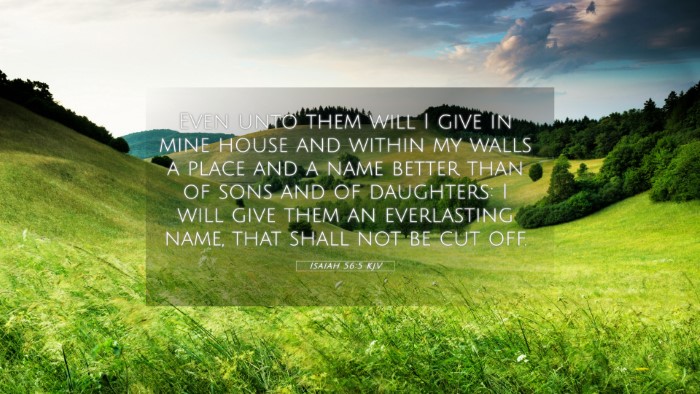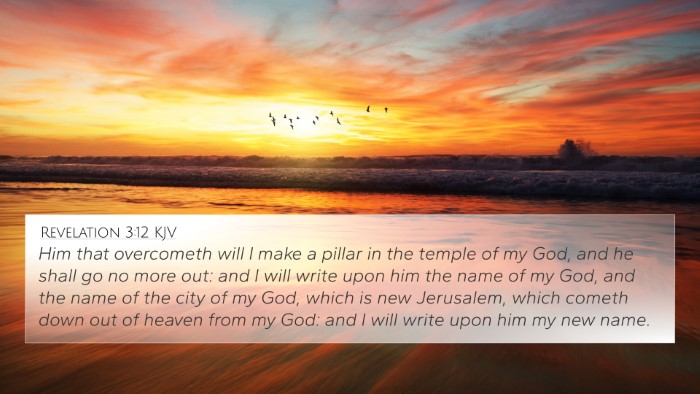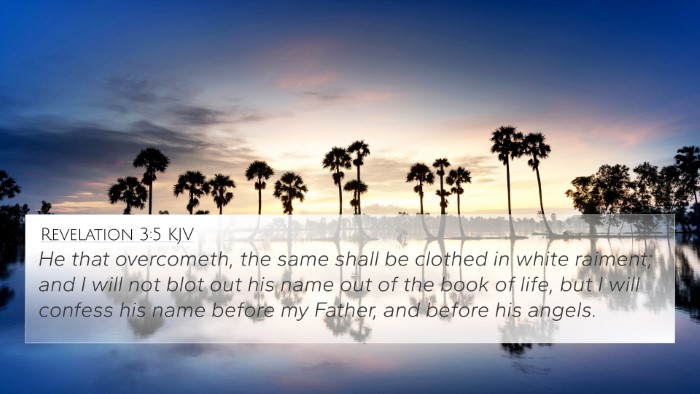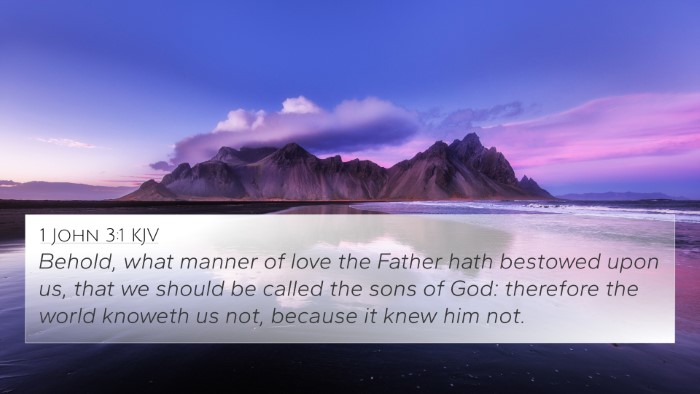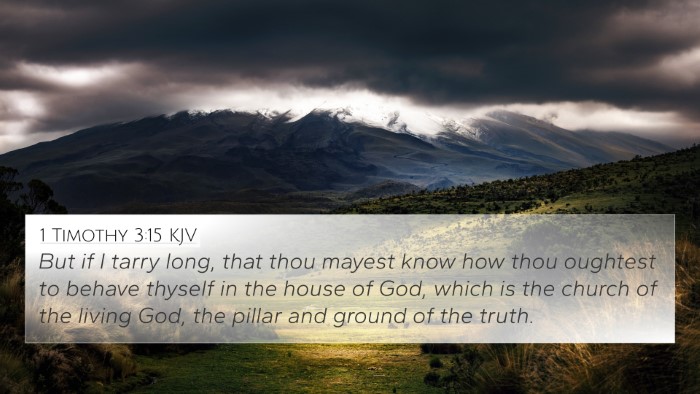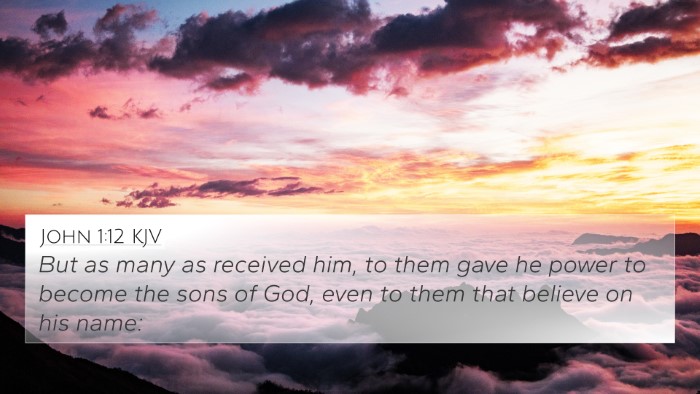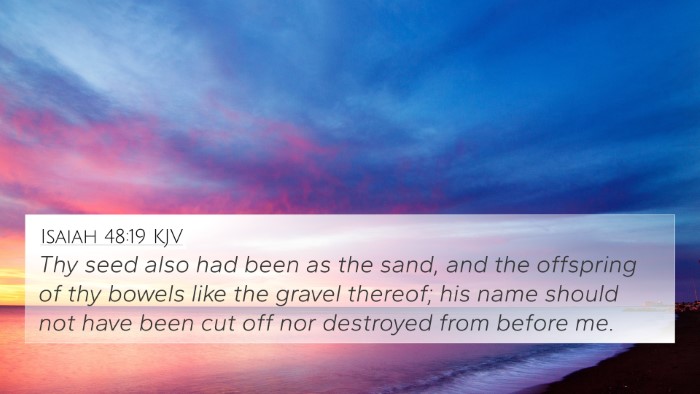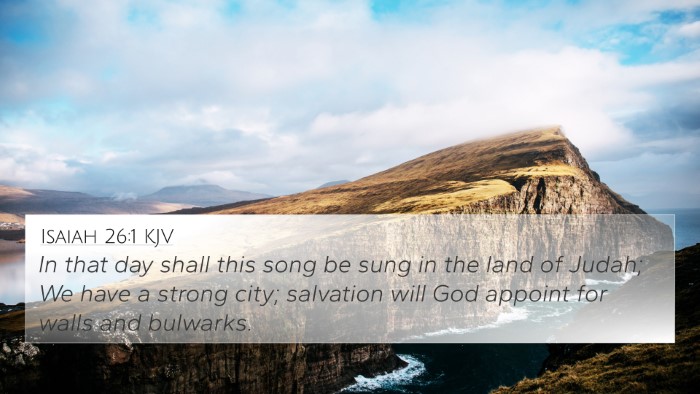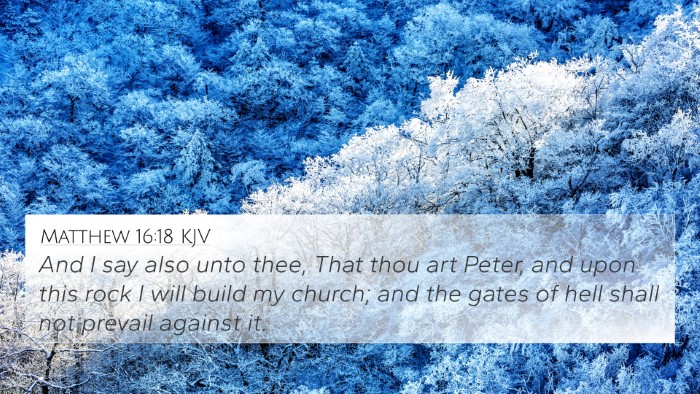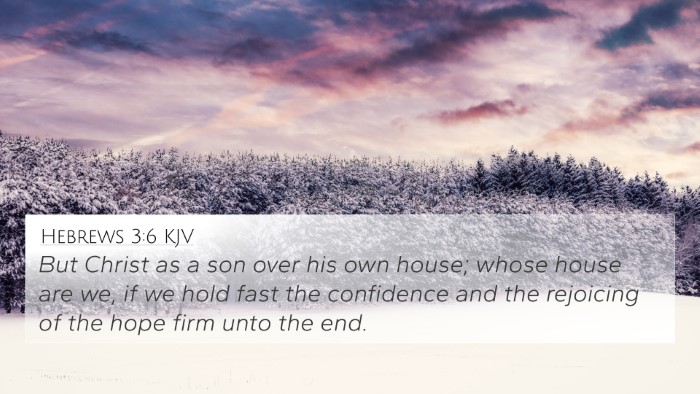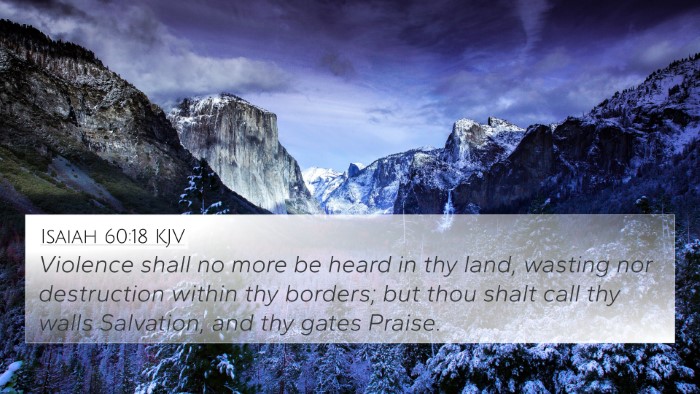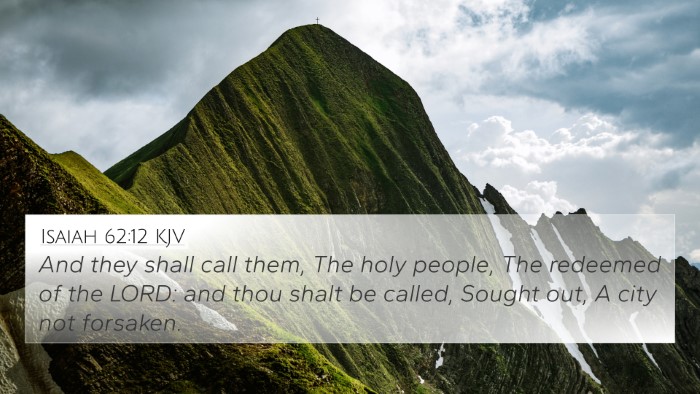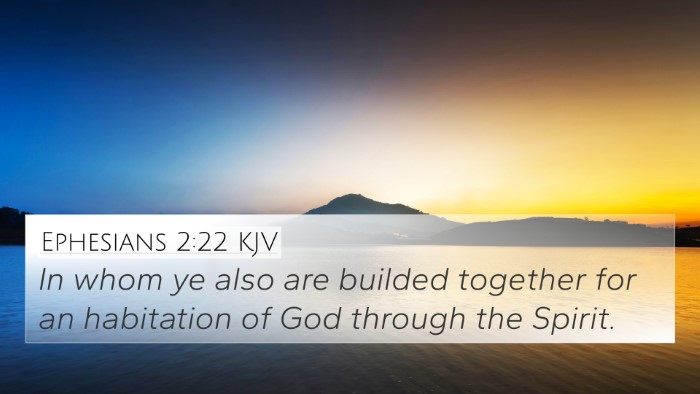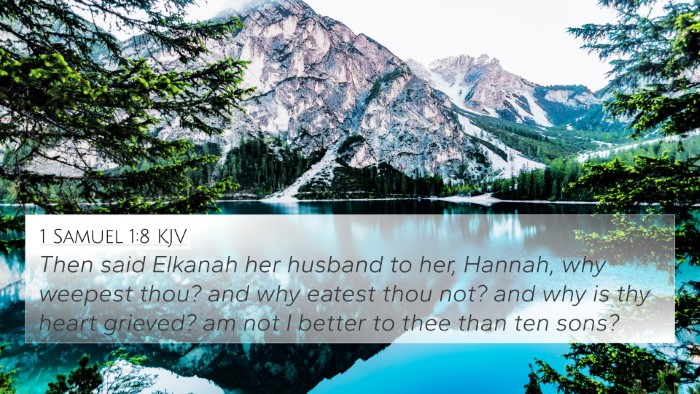Understanding Isaiah 56:5
Isaiah 56:5 states: "And to them will I give in mine house and within my walls a place and a name better than of sons and of daughters: I will give them an everlasting name, that shall not be cut off."
Summary of Meaning
This verse is a powerful proclamation of God's inclusiveness and promise of honor to those who were once excluded. It signifies the transformation of the relationship between God and those who may have felt marginalized, particularly the eunuchs and foreigners mentioned earlier in the chapter. The promise of a name and a place suggests a deeper belonging and identity within God's community.
Insights from Commentaries
- Matthew Henry: Henry emphasizes the grace shown to those who were seen as less than fully human within society. He notes that God's offer of a better name and everlasting remembrance reflects His desire for all to be included in His covenant family, regardless of their past or social standing.
- Albert Barnes: Barnes comments on the significance of a "name" in ancient cultures, which often represented honor and identity. He interprets this as God’s promise that those who join His fold will be recognized and valued, providing both a tangible and spiritual belonging.
- Adam Clarke: Clarke points out the context of this verse in the broader message of Isaiah, where God is calling all to reconciliation. He highlights that the name given by God is everlasting, signifying eternal solidity and assurance of identity in heaven.
Cross-References
Isaiah 56:5 connects with several verses throughout the Bible that illustrate themes of inclusion, identity, and divine promise:
- Jeremiah 31:20: Addresses the love and restoration of those who are apart from God's people.
- Romans 8:15: Speaks of believers receiving the spirit of adoption, confirming their identity as children of God.
- Galatians 3:28: Emphasizes that all believers, regardless of race or status, are one in Christ.
- Revelation 3:12: Promises the faithful a new name written in heaven, echoing the everlasting name given in Isaiah.
- Psalm 87:5-6: Celebrates the inclusion of Zion as a city of God where all are recognized.
- Matthew 5:5: Promises that the meek shall inherit the earth, resonating with God's offer of belonging.
- John 10:16: Refers to Jesus as the shepherd who calls all His sheep, again speaking to divine inclusion.
- Isaiah 61:7: Promises double honor to those who once faced shame, connecting to the themes of identity and reward.
- Philippians 4:3: Highlights the names of believers being remembered and honored in heaven.
- Hebrews 11:16: Points to the heavenly promise for those who seek a better country, which aligns with the assurance provided in Isaiah 56:5.
Thematic Connections
The themes present in Isaiah 56:5 resonate throughout both the Old and New Testaments:
- Divine Inclusion: The message of welcome and belonging permeates scripture, inviting all people to partake in God's promises.
- Identity and Purpose: Each verse builds a narrative illustrating how God defines our identity, reinforcing that we are called by Him, with a specific purpose.
- Promises of Eternity: The suggestion of an everlasting name encourages believers about their eternal standing and relationship with God.
- Honor and Recognition: Both earthly and spiritual honors highlight the significance of being counted among God's people.
Tools for Cross-Referencing Biblical Texts
Utilizing tools for Bible cross-referencing allows deeper insights into the interconnectedness of scripture. Some helpful resources include:
- Bible Concordance: A list of words with accompanying verses for easy reference.
- Bible Cross-Reference Guide: Compilations that show relationships between verses thematically.
- Cross-Reference Bible Study: Methods to engage with scriptures through comparisons.
- Bible Reference Resources: Tools that help in understanding the links between verses.
- Bible Chain References: A technique to move through scripture based on related verses.
Conclusion
Isaiah 56:5 serves as a profound testament to God's love and the promise of inclusion in His fold. Understanding this verse through the lenses of commentary and cross-reference enriches our appreciation of Scripture and the interconnectedness of Biblical themes. By exploring these connections, believers can grow deeper in their faith and understanding of God's eternal promises.

